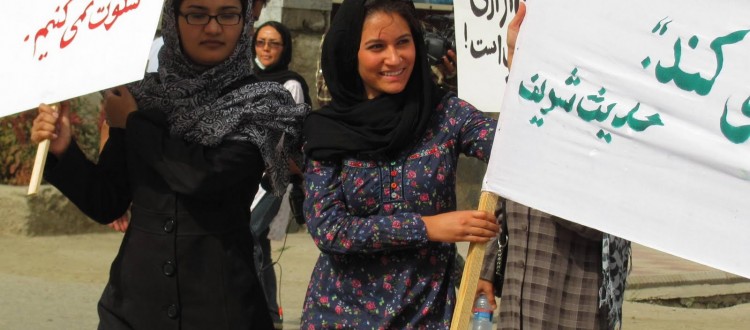New report on partnerships with local civil society organisations in conflict
Oxfam and International Alert’s new report “Partnerships in Conflict” presents research on the impact of violent conflict on civil society organizations and the implications for international actors who partner with them. The research took place in Myanmar, Afghanistan and the Democratic Republic of Congo.
| Suggested Reading | Conflict Background | GCCT |
Local civil society organisations (CSOs) are at the forefront in responding to the needs of the millions of civilians caught in violent conflict. They are made up of individuals who generally are the best placed to understand the context and complex conflict dynamics of the local and national situation and thus, key to ensuring that life-saving resources reach the people who desperately need them .
And yet, international actors struggle with knowing the best way to partner and engage with local CSOs. As the recognition of the importance of and commitment to localization grows international funding flows will continue to increase for CSOs. It is therefore crucial for international actors that work in fragile contexts to engage with CSOs and to do so in a way that understands the challenges that CSOs face and the best ways to support them.
In a joint effort to grapple with these challenges and spark debate in the sector, Oxfam and International Alert’s new report “Partnerships in Conflict”, presents research on the impact of violent conflict on civil society organizations and the implications for international actors who partner with them. The research took place in Myanmar, Afghanistan and the Democratic Republic of Congo.
To read more on both Oxfam and International Alert’s reflections on the findings of the research, check out our blogs:
- Mark Golding and Harriet Lamb’s blog on how violent conflict impacts local civil society and how international partners respond, stresses the need for international non-governmental organisations (NGOs) themselves to become better partners in situations of violent conflict and would greatly benefit from reflecting and re-evaluating the role of international actors in these contexts. Read the blog >>
- Phil Vernon’s blog outlines the crucial role of civil society as an essential indicator for resilient society and the importance of mutually reinforcing partnerships between local civil society and international actors. Read the blog >>
- Yo Winder’s blog reflects on the role international actors play in keeping partners safe and rethinks the nature of ‘capacity building’ in these contexts. Read the blog >>
The report was officially launched at the London School of Economics with a lively debate with panellists from CIVUCUS, DFID, BAAG, International Alert and Oxfam. Watch the debate >>
There is still so much to learn and so much room for improvement in how we approach partnership in situations of violent conflict.
We’d love to hear and learn from others, so do get in touch and let’s keep the debate going.
- Summer Brown (Director of Peacebuilding Advisor Unit at International Alert – sbrown@international-alert.org
) - Yo Winder (Global Advisor for Partnerships and Accountability at Oxfam – ywinder@oxfam.org.uk)
- Annabel Morrissey (Conflict and Fragility Lead at Oxfam – amorrissey1@oxfam.org.uk)
The views expressed in this article do not necessarily reflect the views of TransConflict.




















Pingback : January 2018 Review - TransConflict